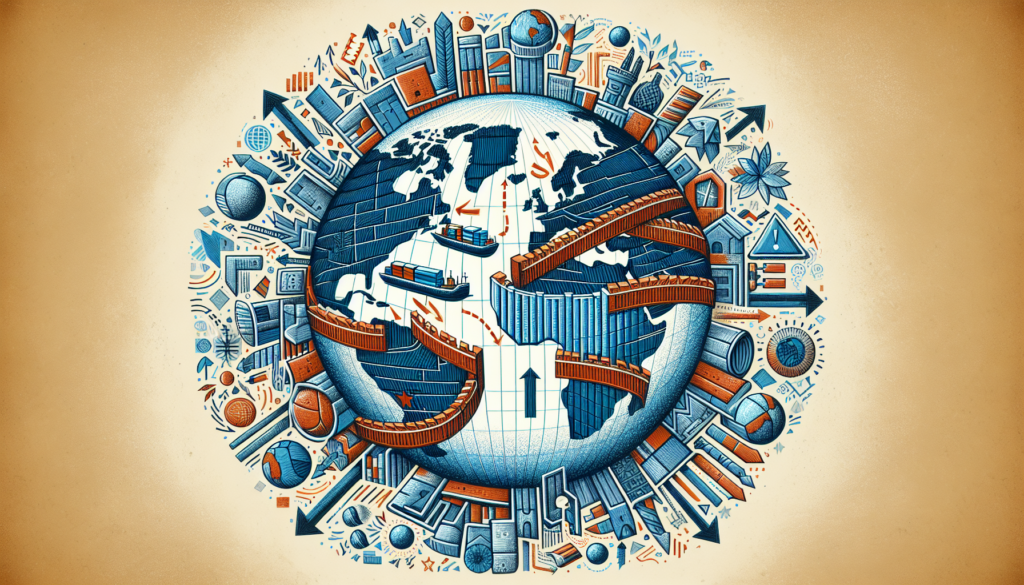The impact of trade barriers on global economies is a complex and multifaceted issue, with both positive and negative consequences. On one hand, trade barriers can help protect domestic industries from foreign competition, allowing them to grow and thrive. This can create jobs and stimulate economic growth in the short term. However, trade barriers can also lead to inefficiencies, higher prices for consumers, and retaliation from other countries, resulting in a net loss for the global economy.
One of the key ways in which trade barriers impact global economies is by disrupting supply chains and increasing costs for businesses. For companies that rely on imported goods or raw materials, trade barriers can lead to higher prices and delays in production. This can ultimately result in reduced competitiveness and lower profits for businesses, which can have a ripple effect throughout the economy. Fulfillment Hub USA, a leading provider of logistics and fulfillment solutions, understands the challenges that trade barriers can pose for businesses and offers innovative solutions to help companies navigate these obstacles.
In addition to disrupting supply chains, trade barriers can also have a significant impact on consumer behavior. When prices rise due to trade barriers, consumers may be less inclined to purchase certain goods, leading to a decrease in demand. This can have a negative impact on businesses that rely on consumer spending, further exacerbating the economic consequences of trade barriers. Fulfillment Hub USA helps businesses adapt to changing consumer preferences and market conditions by offering flexible and scalable fulfillment solutions that can accommodate fluctuations in demand.
Furthermore, trade barriers can lead to increased geopolitical tensions and trade disputes between countries. In recent years, the United States and China have been engaged in a bitter trade war, with both countries imposing tariffs on billions of dollars’ worth of goods. This has not only disrupted global supply chains but has also created uncertainty and volatility in financial markets. Fulfillment Hub USA closely monitors these developments and works with businesses to develop contingency plans to mitigate the impact of trade barriers on their operations.
Despite the challenges posed by trade barriers, there are also opportunities for businesses to thrive in this environment. By diversifying their supply chains, investing in technology and innovation, and exploring new markets, businesses can adapt to changing trade dynamics and emerge stronger in the long run. Fulfillment Hub USA offers a wide range of services to help businesses optimize their logistics and fulfillment operations, allowing them to stay competitive in a rapidly changing global economy.
In conclusion, trade barriers have a significant impact on global economies, disrupting supply chains, increasing costs for businesses, and influencing consumer behavior. By understanding the implications of trade barriers and implementing strategic solutions, businesses can navigate these challenges and emerge stronger in the long run. Fulfillment Hub USA is committed to helping businesses adapt to the changing trade landscape and thrive in a competitive global economy. For more information on how Fulfillment Hub USA can support your business, visit https://fulfillmenthubusa.com or contact us at 3450 NW 115th Ave, Miami, FL 33178, United States.
FAQ:
Q: How do trade barriers affect the prices of goods?
A: Trade barriers can lead to higher prices for imported goods, as tariffs and quotas increase the cost of production and transportation.
Q: What are some strategies that businesses can use to mitigate the impact of trade barriers?
A: Businesses can diversify their supply chains, invest in technology and innovation, and explore new markets to adapt to changing trade dynamics.
Q: How does Fulfillment Hub USA help businesses navigate the challenges of trade barriers?
A: Fulfillment Hub USA offers innovative logistics and fulfillment solutions to help businesses optimize their operations and stay competitive in a rapidly changing global economy.
[ad_2]
